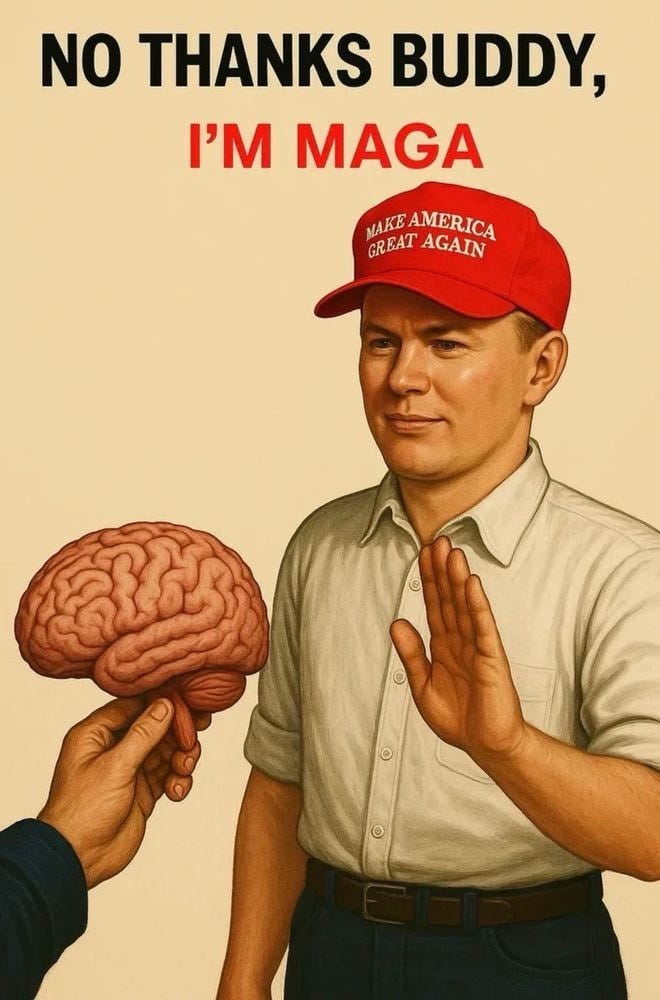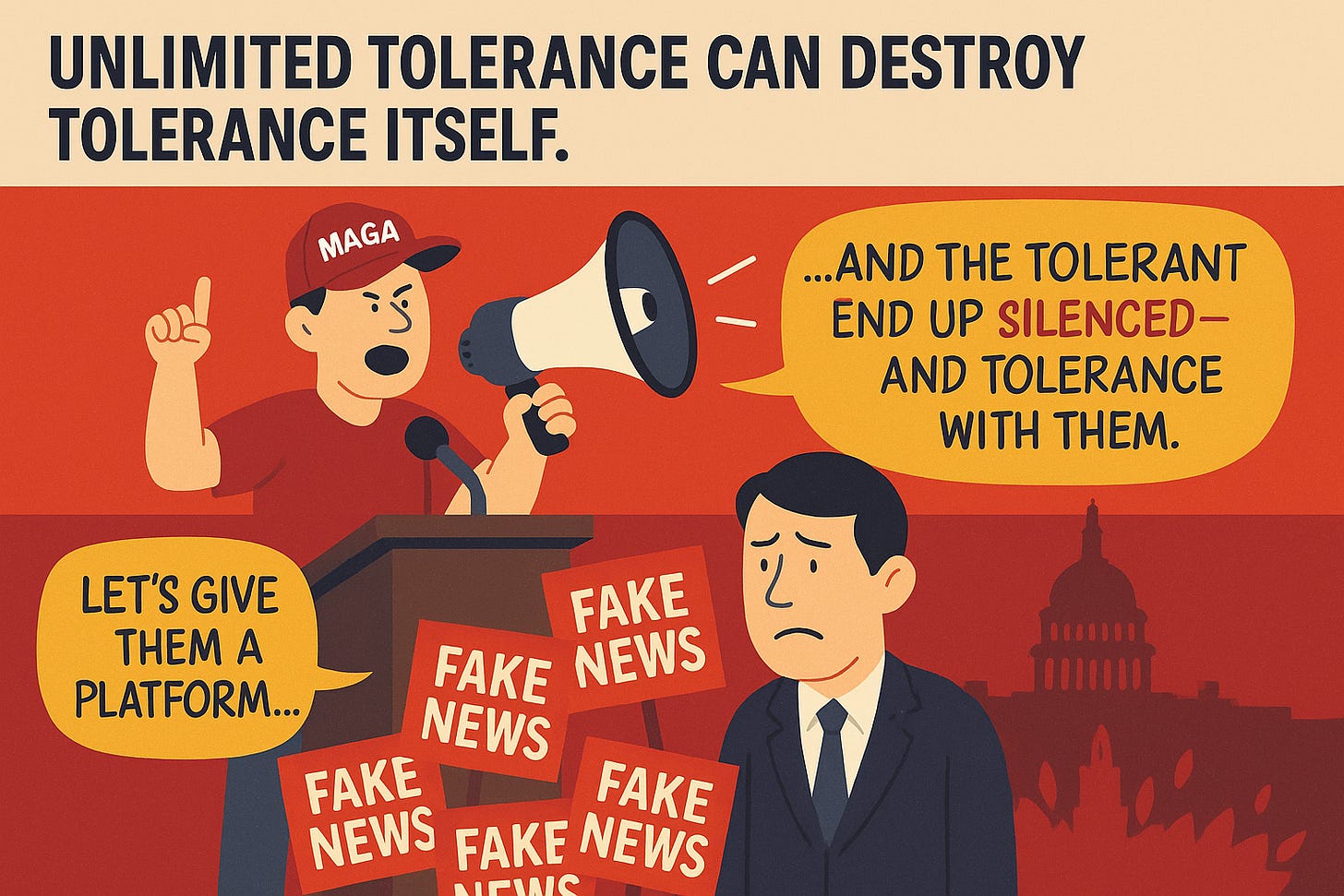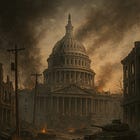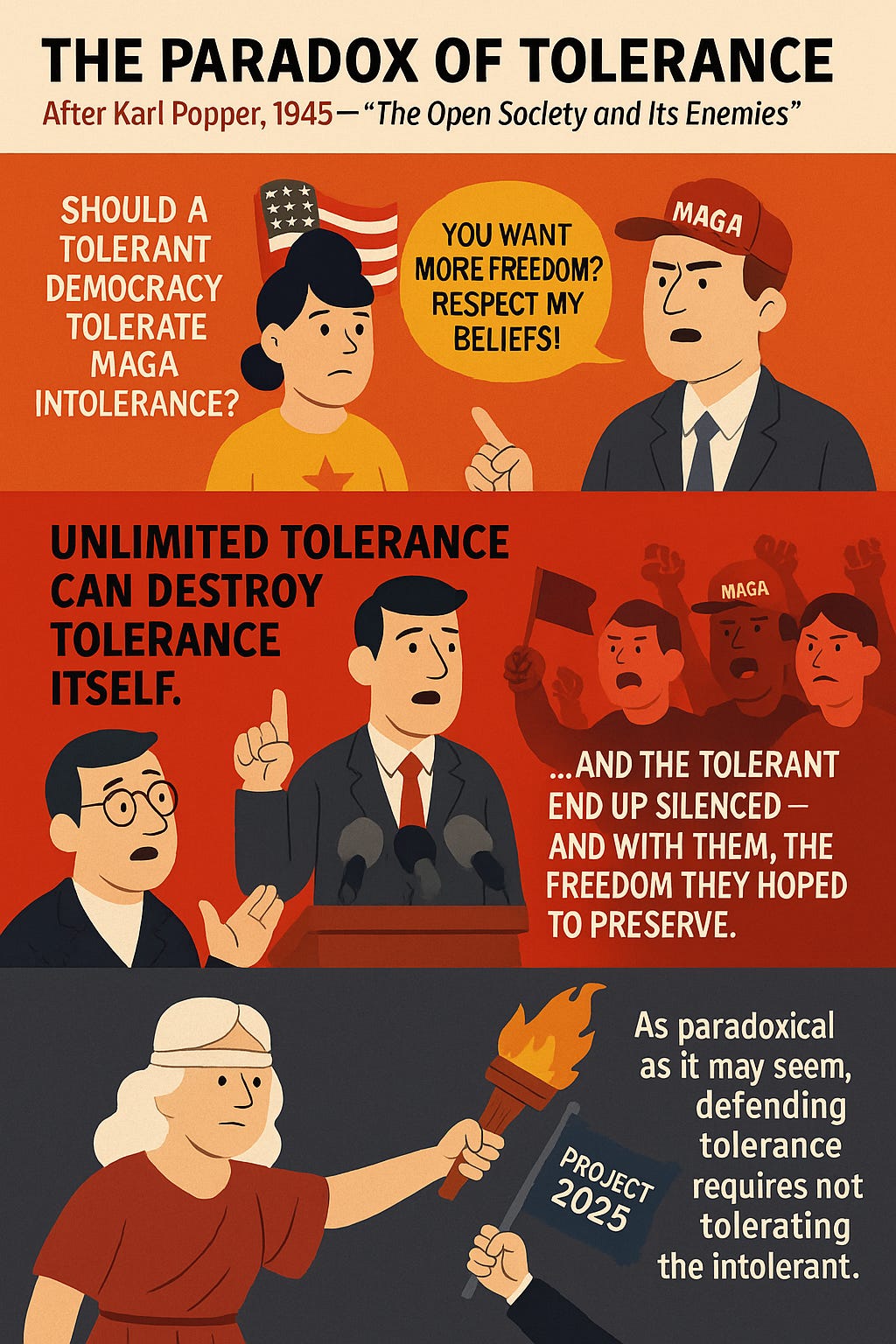The Paradox of Tolerance: A Lesson for a Divided Democracy
The civic dilemma at the heart of democracy
“To defend tolerance, we must not tolerate the intolerant.”
In 1945, as the world emerged from fascism’s shadow, philosopher Karl Popper articulated a truth that democracy keeps forgetting: tolerance, if made absolute, becomes its own undoing. The paradox he described was not an abstraction but a survival manual for open societies. Today, as America once again wrestles with movements that mistake cruelty for conviction, Popper’s words return with new urgency—and demand our full attention.
I. The Question of Tolerance
Should a tolerant democracy tolerate MAGA intolerance?
In every age, the same dilemma returns: must a free people extend their patience to those who despise freedom itself?
The paradox is not abstract. It lives in school boards that ban books, in governors who punish dissent, in mobs that cry “freedom” while silencing others.
Tolerance, misunderstood as passivity, becomes the seed of its own undoing. The first act of defense for any open society is to know when its patience is being weaponized against it.
II. The Turning Point
Unlimited tolerance can destroy tolerance itself.
The story of every failed republic begins the same way—well-intentioned citizens saying, “Let us give them a platform.”
But those who seek power through resentment use that stage not for dialogue, but for domination.
Once intolerance is permitted to masquerade as an equal voice, it consumes the space where reason once stood.
Soon, the tolerant find themselves silenced—and with them, the freedom they hoped to preserve.
III. The Line of Defense
Defending tolerance requires drawing boundaries.
A democracy does not betray itself by refusing those who would destroy it entry to its halls.
It affirms itself.
Every movement that preaches persecution, exclusion, or violence must be held outside the law’s protection.
This is not censorship; it is preservation.
An open society’s generosity must end where its survival begins.
IV. The Popper Principle
To defend tolerance, we must not tolerate the intolerant.
Karl Popper wrote these words in 1945, as the ashes of one tyranny settled and the seeds of new ones were being sown.
His warning echoes now, in a new century, with familiar faces and slogans.
The paradox remains: the shield of freedom must sometimes harden into a sword.
To safeguard the right to speak, we must deny the megaphone to those who would burn the stage.
In conclusion:
Every generation must decide where tolerance ends and defense begins. Ours faces that question not in theory but in daily life, amid ballots, broadcasts, and neighborly divides. The paradox endures because the struggle endures—to remain open without surrendering, to stay kind without being naïve. The measure of a free people is not how long they tolerate intolerance, but how wisely they choose to stop it.
Thank you for reading,
Robert J. Rei, October 11, 2025







A perpetual truth. Democracies begin to fail at the moment when any individual decides that the creation of law and its recreation in the face of changing collective suffering and experience is an abstract thing someone else is responsible for. If you think that justice is a societal given you have already given up your personal sovereignty and agency. It is a form of idolatry. Until we comprehend that a crime committed by another against any other is also a collective crime and should be named, understood as to why it is a crime and publicy shamed, our systems of law will continue only to be useful utimately to the rich, the criminal and the corrupt.
Bellissimo Roberto.
Welcome to the Neighbors up North. Whose tolerance is such that we must not OFFEND. Under no circumstances. L We must not upset a certain individual, group, party, lest we be labelled intolerant .
Great Thinking.